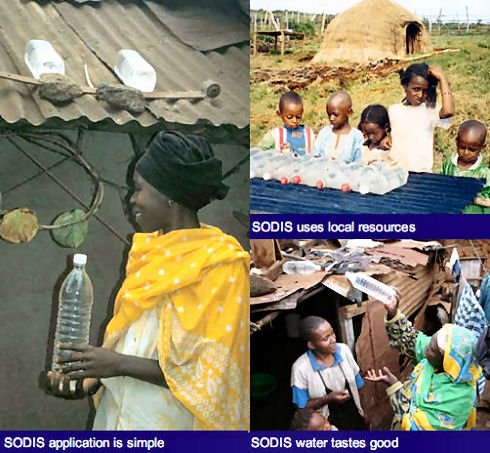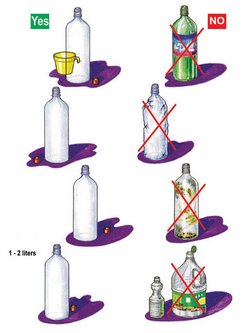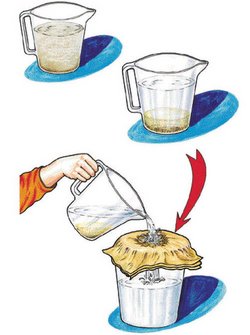Solar water disinfection (SODIS) has been around for quite some time now and with approx. over 340.000 users in Africa alone, this low budget water disinfection “technology” is a smart approach that deserves to be mentioned on AfriGadget.
In areas where piped drinking water just isn’t available or of questionable quality, solar water disinfection is a cheap and effective method for decentralized water treatment as it can be applied at household level. It is a simple method that’s easy to teach and is designed for small scale production.

(source )
SODIS uses solar radiation to destroy pathogenic microorganisms which cause water borne diseases:
Sunlight is treating the contaminated water through two synergetic mechanisms: Radiation in the spectrum of UV-A (wavelength 320-400nm) and increased water temperature. If the water temperature raises above 50°C, the disinfection process is three times faster. (source)
The World Health Organization (WHO) even recommends SODIS as a viable method for household water treatment and safe storage.
All you will need are clean & transparent PET bottles, fill them up with water and expose them to direct sunlight for at least 6 hours . Many people also put them on a corrugated roof (to increase temperature) and saturate the oxygen content inside the bottles prior to the sun treatment by filling them up three quarters, shaking them for 20 seconds with a closed cap on and then fill them up completely.


(source)
SODIS may also replace the boiling of water which often requires vast amounts of firewood or other natural resources, so it not only helps people obtain safer drinking water (conventional filter candles are expensive and not always available) but also helps to preserve the local environment.
SODIS obviously can’t substitute really clean drinking water, and it often also requires pre-treatment in case the water turbidity is too high . Users can easily reduce the turbidity though by letting the bottles stand for a while until the particles settle to the ground and then also filter it through a folded cloth.
The best aspect about SODIS though – despite of it’s low budget approach – is that consumers are directly in charge of their drinking water and have a working method that enables them to treat their own drinking water.
The Swiss Federal Institute of Aquatic Science and Technology (Eawag) also published a very informative website on SODIS and provides more details about the technology as well as case studies from around the world.

